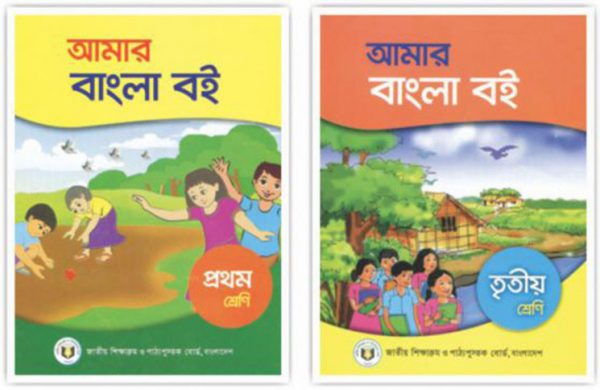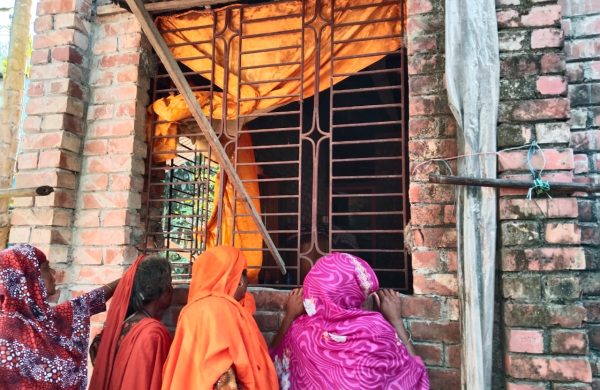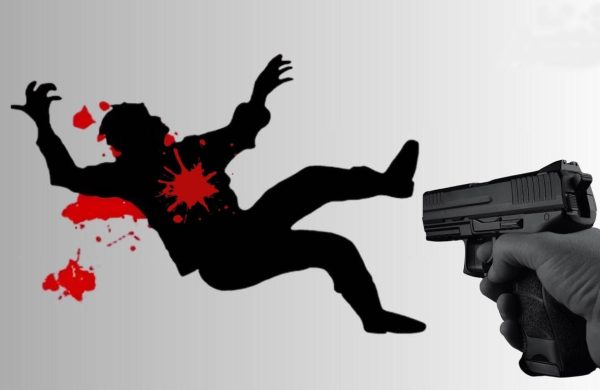Primary, Secondary level: Major changes coming to Bangla, English textbooks
- Update Time : Tuesday, December 31, 2024

TDS Desk
Bangla and English textbooks for primary and secondary educational institutions are set to see some major changes, including the dropping of some contents related to Bangabandhu Sheikh Mujibur Rahman.
Contents on the student-led mass uprising are likely to be included in the Bangla and English textbooks for classes five to nine, said sources at the National Curriculum and Textbook Board (NCTB).
Six texts and proses on Sheikh Mujibur Rahman will be dropped from English textbooks of classes six to nine, while four write-ups on the July uprising are to be added in those.
Three proses and poems on Sheikh Mujibur Rahman might be dropped from Bangla textbooks of classes 6 and 7, and four write-ups on July uprising are likely to be added in their stead.
A content each on Maulana Abdul Hamid Khan Bhashani and Titumir will be removed from the class six Bangla textbook.
It has also been decided that five contents written by Selina Hossain, two by Prof Muhammad Zafar Iqbal, one each by Syed Shamsul Haque, Rokonuzzman Khan, Nirmalendu Goon and former bureaucrat Kamal Chowdhury, along with others, will be removed.
Asked, NCTB Chairman Prof AKM Reazul Hassan, said, “Exaggerated contents about Bangabandhu Sheikh Mujibur Rahman are being removed from the textbooks. One leader, one country — that’s not what it is. There were other leaders, such as Sher-e-Bangla AK Fazlul Huq, Maulana Bhashani, and Ziaur Rahman, and there is no scope to underestimate their contributions.”
He added that some contents on Bangabandhu, such as on the 1969 mass uprising, the 1970 election, and the March 7 speech in 1971, still remain in many of the textbooks.
About the removal of contents on Maulana Bhashani, he said, “It might have been removed from one textbook, but was included in another.”
Regarding the removal of content on Rokeya Sakhawat Hossain from a class seven textbook, he explained, “Another piece on her has been added but in a different textbook.”
CHANGES IN ENGLISH TEXTBOOKS
Two texts — “Son of the soil” and “Mujib in School days” — on Sheikh Mujib, adapted from “Unfinished Memoirs”, an autobiography by Sheikh Mujibur Rahman, have been dropped from the class six English textbook, while a poem — “The Magic E” — was also removed.
A new write-up titled “Our Pride”, a passage on Victory Day, and a poem called “The Chaos” will be included in the textbook.
Two texts — “Bangabandhu’s love for sports” and “Bangabandhu’s responses to natural calamities” — will be removed from class seven’s English textbook.
Another write-up “Bangamata: our source of inspiration”, on the life of Bangabandhu’s wife and Sheikh Hasina’s mother Sheikh Fazilatunnesa Mujib, will be dropped from same book, while two write-ups titled “A New Generation” and “Our Winners in the Global arena”, on student-led mass uprising, will be included.
A content titled “Bangabandhu and Bangladesh”, on Sheikh Mujib’s role in the Language Movement, his historic March 7 address at Suhrawardy Udyan, his declaration of independence in the first hours of March 26 of 1971, is also going to be dropped from the class eight English textbook.
Texts like “Women’s Roles in The Uprising” and “Human and Development” will be added to the textbook.
A write-up titled “Father of the Nation”, which deals with Bangabandhu’s family during the 1971 Liberation War, his return home from captivity in Pakistan, his time at the UN and others, is likely to be dropped the class nine English textbook.
On the other hand, a content on the graffiti art during the student mass uprising and two others write-ups — “Sense of Self” and “Loneliness” — are set to be included in the same textbook.
CHANGES IN BANGLA TEXTBOOKS
A poem “Roudra Rekhe Joy” by Shamsur Rahman, a rhyme “February’r Gaan” written by Lutfor Rahman Riton, and short story “Opekkha” by Selina Hossain will be dropped from class five’s Bangla textbook.
Texts titled “Matir Niche Shohor”, on The Wari-Bateshwar ruins in Narsingdi; “Dekhe Elam Niagara” on the Niagara Falls; and contents on Maulana Abdul Hamid Khan Bhashani and on Titumir, a revolutionary in British India; are set to be dropped from the same textbook.
Meanwhile, a write-up titled “Amra Tomader Bhulbo Na” on the July uprising; a poem “Sobar Ami Chhatro”; and write-ups like “Jalpuri o Kathurer Golpo”, “Nolok”, “Kumro O Pakhir Kotha”, and “Doittyo O Jele” are to be added to the textbook.
Two proses titled “Our Fine Arts” by Kamrul Hasan, and “Satire and the Language of Protest”, a compilation of writings on the July uprising, will be included in the Charupath textbook for class six.
Besides, poem “Chithi Bili” by Rokonuzzaman Khan is likely to be added in the book, replacing poem “Mujib” by the same writer.
In the Bangla grammar book, an article called “Bangabandhu Sheikh Mujibur Rahman”, which termed him the “best Bangalee of 1,000 years” and the undisputed leader of the country’s Liberation War, will be removed.
In the class seven Soptoborna textbook, a prose titled “Rokeya Shakhawat Hossain” by Selina Hossain is set to be dropped, while a new poem titled “Sithi” on the July uprising, written by Hasan Robayet, will be added. Two other poems titled “Shono ekti Mujibur’er theke” by Gouri Prasanna Majumder and “Sobar Ami Chhatro” by Sunirmal Bose will be removed.
In class seven’s Anandapath textbook, a travelogue titled “Switzerland er Dinguli” written by Selina Hossain is also going to be dropped.
In the Bengali textbook for class eight, two proses — “Library” by Motahar Hossain Chowdhury and “The Story of Mass Uprising” — will be added. A prose titled “Our Fine Arts” by Kamrul Hasan will be dropped.
In another Bangla book for same grade, a novel titled “Amra and Crab Nebula” by Zafar Iqbal will be removed.
In the Bangla Literature textbook of classes nine and 10, two proses – “Ekusher Golpo” by Zahir Raihan and “Amader Notun Gourab Gatha”, a compilation of texts on the July uprising — will be included.
Meanwhile, “Dena Paowna” by Rabindranath Tagore, “Library” by Motahar Hossain Chowdhury, “Pahela Baishakh” by Kabir Chowdhury, “Badh” by Zahir Raihan, “Rokte Bheja Ekush” by Selina Hossain, “Niyoti” by Humayun Ahmed and “Tothyo Projukti” by Zafar Iqbal are going to be removed from the book.
Four poems – “Aj Srishti Shukher Ullashe” by Kazi Nazrul Islam, “Amar Porichoy” by Syed Shamsul Haq, “Swadhinota Ei Shobdoti Kibhabe Amader Holo” by Nirmalendu Goon, and “Shahoshi Jononi Amar” by Kamal Chowdhury – will also be taken out of the same book.
A novel titled “1971” by Humayun Ahmed is likely to be added, while “Kaak Tarua” by Selina Hossain will be removed from Bangla textbook of classes nine and 10.
About dropping contents by various writers, NCTB chair Reazul said, “It might seem that contents by many writers were removed, but alternative contents on the same themes have been added.
“For example, while some writings on the Liberation War by Selina Hossain and Zafar Iqbal were removed, other contents on the same topic were included.”
Officials of the NCTB and other experts involved in the changes in the textbooks said the authorities concerned took up a policy, in which they decided not to keep any exaggerated information without historical evidence in the textbooks.
“Another policy is that no incident or person will get any undue preference and no incident or person will get less importance,” said one of the experts, seeking anonymity.
He also said Sheikh Mujibur Rahman was not mentioned as “the father of the nation,” in the primary and secondary textbooks.
Reazul said, “The terminology ‘father of the nation’ was imposed and is not relevant anymore. We should move to the terminology ‘founding fathers’. If we say someone is the father of the nation, it becomes a singular narrative of one leader.”
Speaking to this correspondent, writer Rakhal Raha, who was also involved in the process of changing the textbook contents, said they did not wipe out Bangabandhu from the textbooks.
For example, a text on Sheikh Mujib’s March 7 speech is still included in a class eight textbook. The English version of the speech is also there in a higher secondary level textbook. Another write-up on Sheikh Mujib is also there in a class three textbook.
“We firmly believe that, so far, his [Shiekh Mujibur Rahman] presence in textbooks remains significantly higher compared to other historical leaders or their roles,” he said.
NCTB officials added that there are contents on Begum Rokeya and Maulana Abdul Hamid Khan Bhashani and the poem “Shobar Ami Chhatro” in textbooks of different subjects.

















